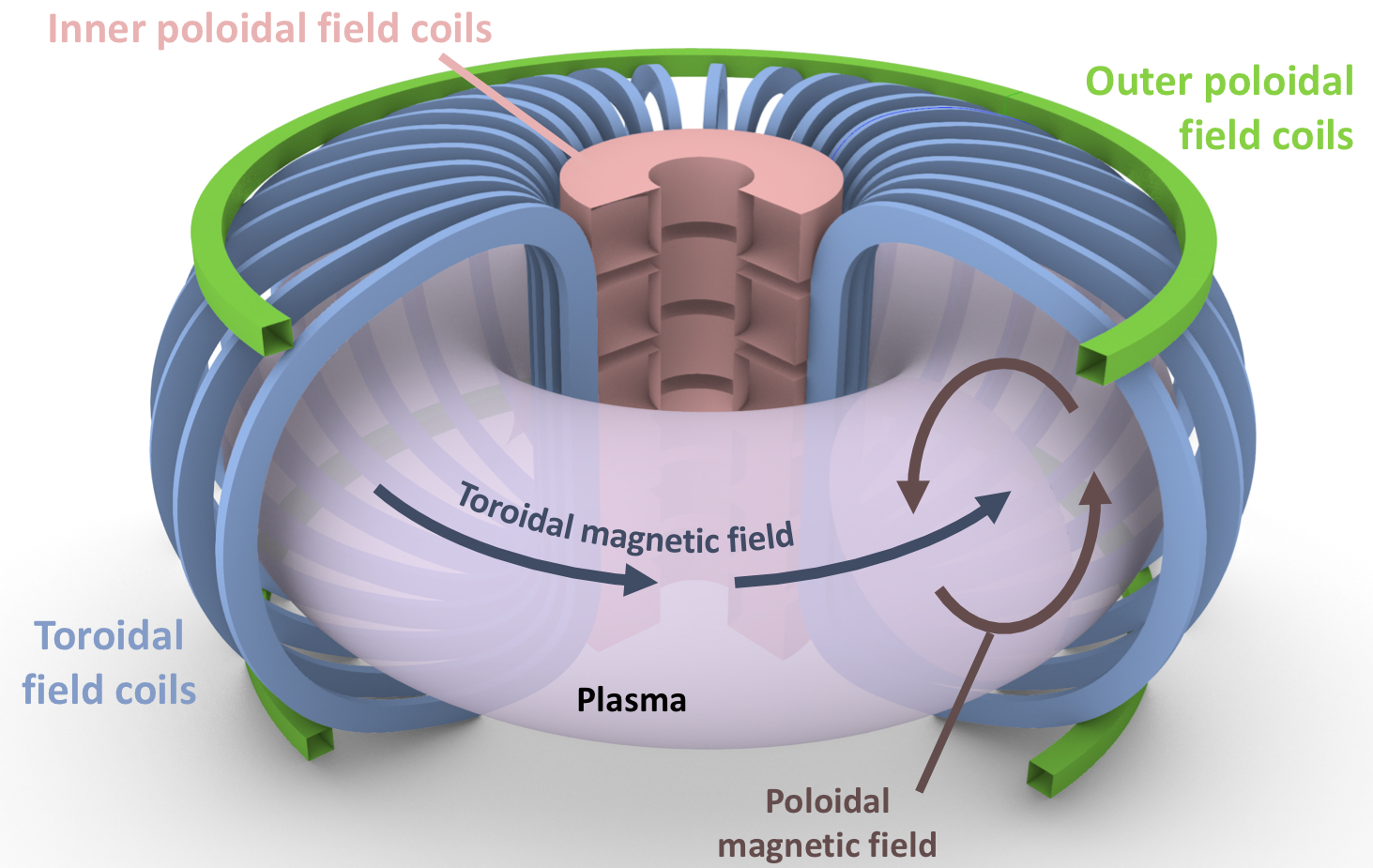About Me
I am from Colorado and use he/him/his pronouns. I received my Ph.D. in plasma physics from the Department of Astrophysical Sciences at Princeton University in 2021. I am currently an associate research scientist at Columbia University, where I work on experimental and computational projects regarding fusion energy science and engineering.
You can learn more about the projects I am involved in, both in research and in diversity, equity and inclusion work, on other tabs on this page. Full lists of my publications, conference contributions and students are also available. To learn more about my career so far, you can also download a pdf of my abbreviated CV here.
Please find my contact information at the bottom of this page if you would like to get involved!
What is Magnetic Confinement Fusion?
Magnetic confinement fusion is an emerging technology that will eventually use the same process as our sun (fusing hydrogen together to make helium) to produce energy here on Earth. The realization of commercial magnetic fusion energy is one of the grandest and potentially most impactful engineering challenges ever faced by the human race. While the promise that fusion offers (clean, safe, firm and abundant energy) is clear, the path towards commercialization is not. At least two large steps remain. First, a fully-integrated demonstration device must be designed and built. Second, this pilot plant must be optimized for affordable production at scale. Both of these objectives sit at the intersection of cutting-edge physics understanding and state-of-the-art engineering solutions, requiring global collaboration and integration across a broad array of topics.
It is a very exciting time to conduct magnetic confinement fusion research! In the next decade or two, the fusion community should have answers to all of the remaining basic physics questions needed to design and build a pilot plant. In the next several decades, fusion energy could begin to play a role in modern electric markets as one of the world’s greatest engineering achievements. Importantly, this technological challenge is supported by both public and private sources, emphasizing the global and collaborative nature of this pursuit. As we get closer to commercial realization, there has been a dramatic surge in the monetary investment in fusion energy sciences and engineering, with the fusion industry recently surpassing $6 billion in private investment and another $1 billion in public funding being proposed this year, on top of existing commitments.
Within magnetic confinement fusion, I work on tokamaks, which are toroidal magnetic devices that use strong magnetic fields to constrain a fusion-relevant plasma. To date, all tokamaks that have been built were built as science experiments designed to help us better understand and optimize the complicated plasma physics at play in this scenario. However, several tokamaks are currently being designed and built that will push this to the next stage by demonstrating ignition - the point at which more energy is produced by a plasma than was required to make it. This milestone (which was also recently achieved by laser-based fusion) will herald a new era in fusion science and engineering studies, and I am very exited to play a leading role in helping it unfold!

A schematic of a tokamak, showing a toroidal plasma confined by several sets of magnetic field coils.
Resume Highlights
Employment
Associate Research Scientist
- Columbia University, New York, NY (United States) 2022 - present
- Fusion power plant engineering and design
Postdoctoral Fellow
- Columbia University, New York, NY (United States) 2021 - 2022
- Negative triangularity and vertical stability studies
Education
Doctor of Philosophy (Ph.D.) in Astrophsyical Sciences (Plasma Physics)
- Princeton University, Princeton, NJ (United States) 2021
- Thesis: Comprehensive Dynamic Analysis of the H-mode Pedestal in DIII-D
Master of Arts (M.A.) in Plasma Physics
- Princeton University, Princeton, NJ (United States) 2018
- Focus in experimental magnetic confinement fusion
Bachelor of Science (B.Sc.) in Engineering Physics
- University of Colorado, Boulder, Boulder, CO (United States) 2016
- Minors: Applied Mathematics, Leadership Studies